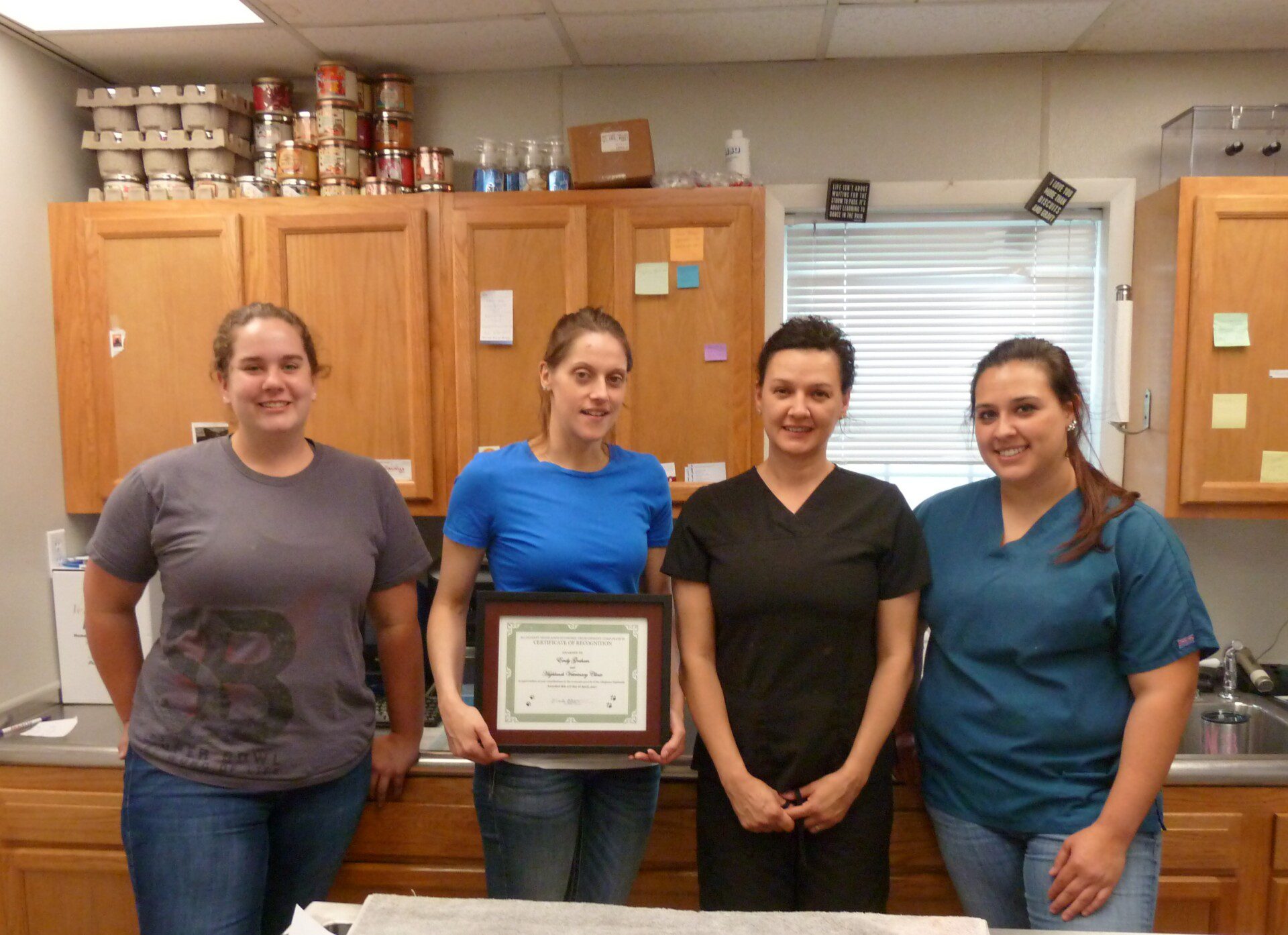Alleghany Highlands Economic Development Corporation Honors Small Business For Contribution To The Highlands

This is the fifth in the series of interviews conducted by the Alleghany Highlands Economic Development Corporation about small business entrepreneurship in our area.
The Alleghany Highlands Economic Development Corporation offers entrepreneurial services.
We provide one-on-one business planning assistance, training, mentoring and operational assistance to existing local small businesses and startups.
We are located on the Dabney S. Lancaster Community College campus and can be reached at 540.862.0936 or marla@ahedc.com.
I recently sat down with Emily Graham of Highlands Veterinary Clinic located at 1121 Richmond Street in Selma to get her perspective on being a small business owner in the Alleghany Highlands.
Emily can be reached by calling 862-3000.
Emily was born and raised in Clifton Forge.
She attended Central Elementary School, the old Clifton Middle School and graduated from Alleghany High School in 2002.
She then attended Virginia Tech for 4 years following up with 4 years of vet school there as well.
What motivated you to come back to the Alleghany Highlands after graduating vet school?
Emily: Well, of course, my family. It is easy to start a business when people know you because then you are not spending a lot of money to advertise your business.
What advice would you give to someone who wants to become an entrepreneur?
We used the Alleghany Highlands Economic Development Corporation a lot when we were trying to get started.
First of all, hire some help.
One thing is to remember that you can’t always please everybody.
Do your homework, have good credit, prepare for a huge amount of paperwork and you must have thick skin.
How do you find people to bring into your organization that truly care about the animals the way you do?
I would say generally most people do not apply for this job unless they really love dealing with animals.
People most always have some type of animal experience on their resumes, whether it is working with the shelter or pet sitting.
I truly do not think anyone has every applied for a job here that has not had some type of experience in some way or another animal related.
How has being an entrepreneur affected your family life?
It is stressful on your family life.
It is difficult to find a balance.
It is easy getting involved with work and not at home.
It is very difficult; there is a balance but it’s hard sometimes.
The community does not understand this well in regards to a vet; not everyone adheres that way but some expect you to be there all the time and it is just not possible.
What has been your most satisfying moment as a vet?
I was nine months pregnant and I was doing an abdominal surgery on a dog whose intestines were hanging out from being attacked by a bear.
I was here for four hours doing surgery late at night on this dog that would not have made it otherwise.
She did fine after the surgery and lived for three more years until she died of something else.
Also, the older generations in the community who live on fixed incomes are very appreciative of what we do and understand that what I do cost money but they do the best they can to pay for their services.
What advice would you give to the younger generation who may want to become a vet or start your own business?
Do your homework on loans, be prepared to work long hours, and set boundaries for your clients.
It is not always puppies and kittens.
It is sickness, death, and financial constraints that force you to make a choice.
Kids think it is fun and it is fun but is also sad.
Animals can’t tell you what is ailing them so you have to figure it out.
To those of us who love animals, veterinary medicine is one of the world’s reputable professions.
So it is with shock and dismay that veterinarians suffer the highest rate of suicides.
Just thus far in my profession I have lost three classmates.
So with those statistics, public non appreciation, the entitlement from some people and some who expect us to fix something with just a pill or thinking tomorrow everything will be better; it just doesn’t work like that.
Adrianna Lomasney: I came as a high school intern and also wanted to become a vet tech.
I quickly learned that because I wanted a family life, this was not something I wanted to do.
So just get into a program, learn and find what it is you really want to do.
Name a few ways that have made you a successful vet?
Emily: I would say just being a normal person, speaking on a level that clients understand, being flexible, being here, and being open and available.
Treat the clients like normal people and treating all pets the same whether you have 2 cents or $20,000. Also we work with all the rescue organizations in the area.
Who has been your greatest inspiration?
I would say my dad.
He is a partner with me in this business.
He has taught me a lot; educational skills, financial skills, people skills and has been a tremendous help to me.
People forget that animals come with humans and you have to deal with the humans first and the animals second.
It can be very difficult and they do not teach you this in vet school.
This is another good advice for vet students; communications skills, public speaking skills, accounting, getting out and about talking to people.
What is your favorite aspect of being an entrepreneur?
I would say setting my own schedule, being flexible with your schedule, taking off if your child is sick without any repercussion, being able to take off when you want.
The flexibility is nice; the responsibility, not so much!